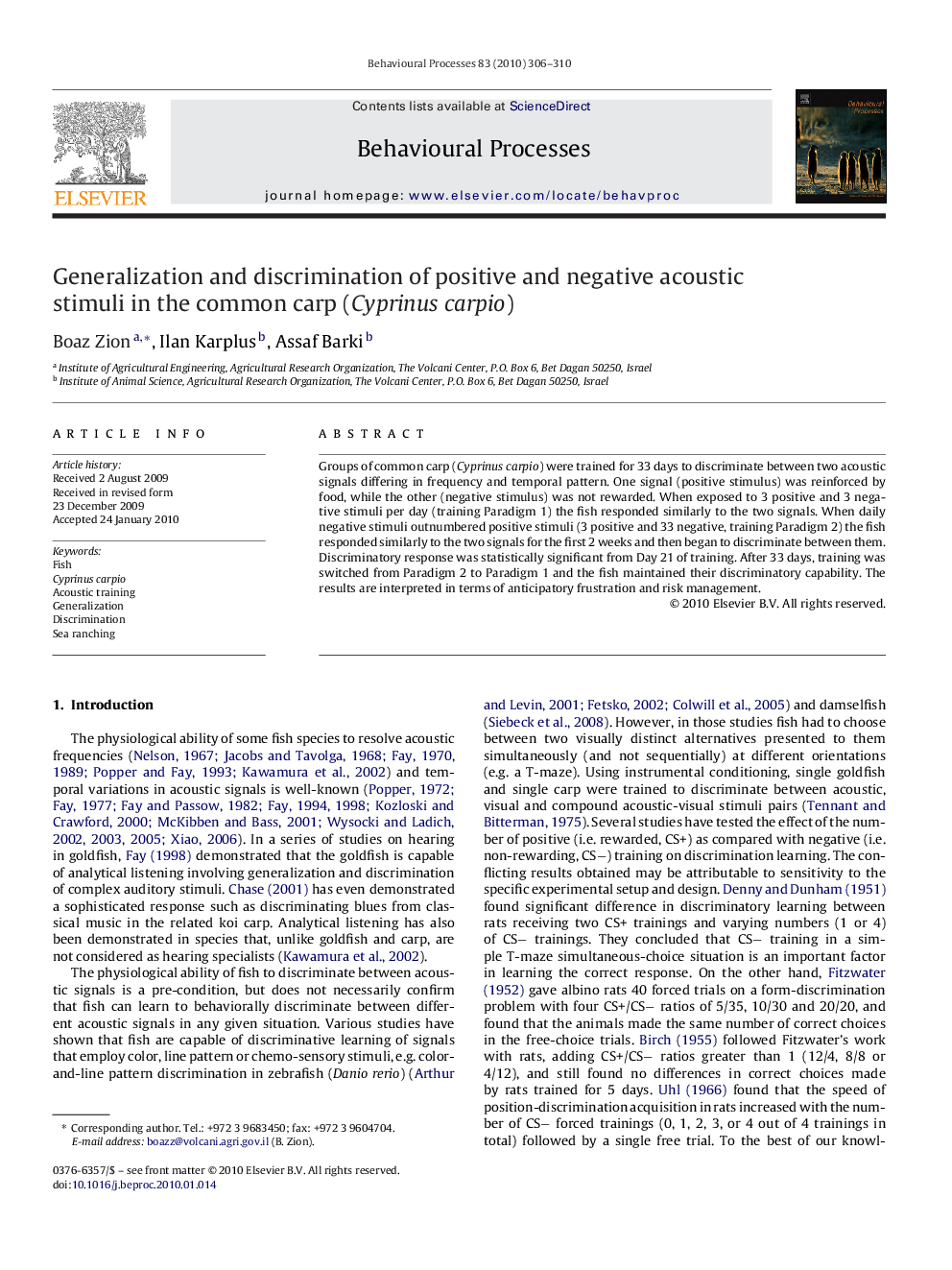| Article ID | Journal | Published Year | Pages | File Type |
|---|---|---|---|---|
| 2427225 | Behavioural Processes | 2010 | 5 Pages |
Groups of common carp (Cyprinus carpio) were trained for 33 days to discriminate between two acoustic signals differing in frequency and temporal pattern. One signal (positive stimulus) was reinforced by food, while the other (negative stimulus) was not rewarded. When exposed to 3 positive and 3 negative stimuli per day (training Paradigm 1) the fish responded similarly to the two signals. When daily negative stimuli outnumbered positive stimuli (3 positive and 33 negative, training Paradigm 2) the fish responded similarly to the two signals for the first 2 weeks and then began to discriminate between them. Discriminatory response was statistically significant from Day 21 of training. After 33 days, training was switched from Paradigm 2 to Paradigm 1 and the fish maintained their discriminatory capability. The results are interpreted in terms of anticipatory frustration and risk management.
